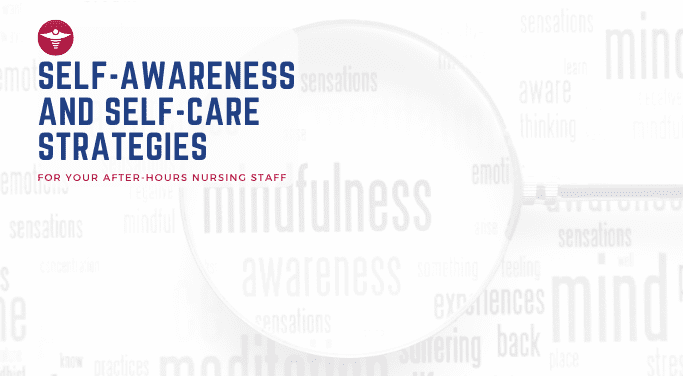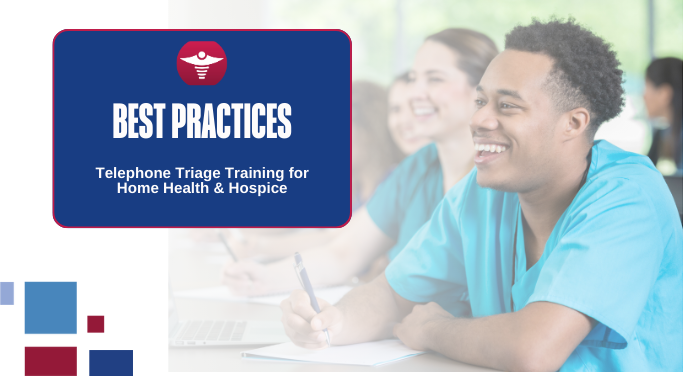Join our guest writer, Erin Whalen of Compassionate Coaching, as she offers self-awareness and self-care strategies for your after-hours nursing staff. You can share these strategies with your nursing staff to help them get through those long nights and weekends more easily. Erin presented on self-awareness and self-care at the National Hospice and Palliative Care Organization’s Interdisciplinary Virtual Conference in Sept 2022 and will present again this spring.
Imagine the stress that your after-hours nursing staff experiences daily. After providing hands-on care to dying patients and emotional support and education to families, nursing staff often go straight into “on-call mode.” These nurses provide hands-on hospice care day in and day out, which, frankly, not many people would be able to do. Then they are asked to continue their workday into the night, into the weekend, weaving work into their personal lives.
The Work-Life Imbalance
Staffing is one of the biggest concerns that hospice agencies face. Leadership teams are doing their best with the resources they have. They are making hard decisions that affect the team at every level. As a result, some agencies choose to have their daytime nurses on call after hours. There are some benefits, such as continuity of care, but this decision exposes their nursing staff to many potential challenges. For example, suppose daytime nurses are also taking after-hours calls. That means the people who are arguably doing the most important work – at the bedside of the dying – don’t have a clear separation between their workday ending and the rest of their personal, family, and non-work life beginning. This type of workload can lead to burnout, staff retention issues, and a steep decline in team morale.
The good news is there are strategies you can share with your nursing staff to help them get through those long nights and weekends with more ease.
Self-Awareness is the First Step
The first set of tips for your after-hours nursing staff involves practicing self-awareness. By being aware of their thoughts, feelings, and bodies, nursing staff can choose to course-correct and approach situations more effectively.
Awareness of Their Thoughts
A recent study suggests that humans, on average, have 6,200 thoughts daily. The vast majority of these thoughts happen automatically, without our awareness. What if most of these thoughts are negative, non-productive, or stress-producing? Now, that’s a scary thought!
If you’ve heard about “death by a thousand paper cuts,” you can see how “burnout by 6,200 negative thoughts” can quickly occur.
When nurses increase their self-awareness about their thoughts, they can more easily see what’s running in the background as they go through their days (and nights!) They might notice ever-present patterns, and they might not like what they see!
They can handle particular situations more easily by bringing self-awareness to their thoughts. For example, if a nurse is more attuned to the thoughts she is having, she might notice that when she’s on call and the phone rings, her initial thought tends to be, “Not again!” Once she has that awareness, she can take a moment to breathe deeply or find a new view that will serve her better in the moment. Instead of thinking, “Not again!” she might try on the thought, “I can help them,” in the moments before picking up the phone. This re-framing could help her fuel the conversation with empathy and compassion.
On the other hand, if she is not even aware that she is having the thought “Not again!” in the first place – remember, humans have approximately 6,200 thoughts a day, most of them subconsciously – then she may fall prey to feeling (unintentionally) resentful, frustrated, or angry as she picks up the phone.
Awareness of Their Feelings
Closely connected to thoughts are feelings; once again, self-awareness is key. Nurses might be so busy “doing” that they are unaware of what emotions drive their actions. For instance, a nurse who goes straight from a rough day to on-call duty might not even be aware of the sense of overwhelm, dread, or resentment they might feel.
Awareness of Their Body
Closely connected to awareness of feelings is awareness of our bodies. Emotions physically present themselves in our bodies, and people experience them uniquely. For instance, when I feel fear, my chest tightens, my upper back curls downward, and my breathing becomes shallow. Someone else experiencing fear may feel unsteady, dizzy, or lightheaded.
If your nurses take on extra responsibilities as after-hours staff, they might feel too busy to clue into their bodies. As a result, they may not be catching the early signs of illness or fatigue living in them. What would it be like for them to slow down and pay attention to how their physical body is feeling?
Your nurses can easily accomplish body awareness by doing what’s known as a body scan. This guided meditation focuses on different body parts as you mentally scan down from head to toe. Body scans can lead to less anxiety and more relaxation, which your nurses will benefit from.
Tips for Your Nursing Staff: Self-Care
Self-care is all the rage these days. But suggesting to your nurses that they engage in more self-care practices could be met with sarcasm and eye rolls.
One concern is that the people who need self-care the most, such as your busy and likely burned-out nursing staff, may not believe they have the time or the energy for self-care. As a result, making time for self-care might be viewed as something else on a never-ending to-do list that they “should” do. Thereby, even the thought of it can be overwhelming.
What Is Self-Care?
If that’s the case, then it’s wise first to describe what self-care actually is. According to Tami Forman’s Forbes article, “Self-Care Is Not An Indulgence. It’s A Discipline: [Self-care] requires tough-mindedness, a deep and personal understanding of your priorities, and a respect for both yourself and the people you choose to spend your life with.” She provides examples of self-care that she admits are “kind of boring.” Among her examples are:
- Saying “no” to the thing you don’t want to do even if someone is going to be angry at you.
- Turning off the TV instead of watching another episode of “The Crown” because the alarm is going off at 5 am so you can get to the gym.
- Letting other people take care of themselves.
In other words, self-care needs to be redefined from indulgent spa days to small everyday choices that help your nurses care for themselves. (Although if you want to give your nurses gift certificates to a local spa to show your appreciation, I don’t think they would complain.)
There is no doubt about it: your nurses work hard day in and day out. This is especially true if they also handle your agency’s after-hours calls. Provide them with these self-awareness and self-care strategies, and you can help them get through their days (and nights!) more easily.
Pivot to a Different Strategy: Outsource Your Triage
[Hi, IntellaTriage here!] We hope you and your staff found value in the tips above. Hospice and home health agencies must find innovative ways to support their nurses, such as outsourcing their triage calls.At IntellaTriage, we realize that hospice and home health providers won’t trust your nurse-based triage care to just anyone. Our licensed, registered nurses with years of experience in hospice care can address up to 75% of your organization’s triage-addressable calls. Now your on-call staff can gain much-needed rest and recuperation. Nurses are less stressed when they are not overwhelmed by phone calls while trying to care for patients and perform all the other duties they face within their workday. Adding outsourced triage as a level of support can also be a way to acknowledge and address burnout symptoms, such as feeling overworked and under-appreciated.
To learn more about IntellaTriage’s revolutionary approach to nurse triage service, contact us today.
Free Consultation↗
Learn more about IntellaTriage’s revolutionary approach to nurse triage service and how it reduces nurse burnout. Contact IntellaTriage for a free consultation today.
Free Infographic Download ↗
Would you like to receive a free infographic with these tips that you can pass along to your nurses? Click here!
More About Compassionate Coaching ↗
Erin Whalen is the Founder of Compassionate Coaching, which exists in order to infuse more empathy into the world. She guides teams in the helping profession, especially bereavement professionals, to get through their days with more ease. She can be reached at erin@compassionatecoaching.org.
Contact Us for a Consultation
Ready to optimize your triage process? Reach out to us today for a consultation tailored to your needs. Let’s elevate your patient care together.
More From The Blog
Patient needs don’t end with the workday and care shouldn’t either. But sustaining continuous care across all hours is far from simple. The real challenge for home-based care organizations is not in recognizing this truth, but rather in designing systems that can support continuous, clinically sound care across all hours and the full episode of [...]
Post-acute care has been shaped these past years by by workforce shortages, evolving regulatory and payment models, and growing expectations around patient experience. Provider organizations now face a critical inflection point. The decisions leaders make in the next 12 months will materially affect quality care, organizational growth, staff experience, and financial stability for years to [...]
Post-acute triage call volumes continue to rise across hospice and home health, driven by higher census, caregiver anxiety, increased acuity at home, and symptom flare-ups. Field nurses are stretched thin, documentation requirements increase regularly, and families expect and deserve immediate clinical guidance, not voicemail. The confluence of these factors mean agencies are paying closer attention [...]









